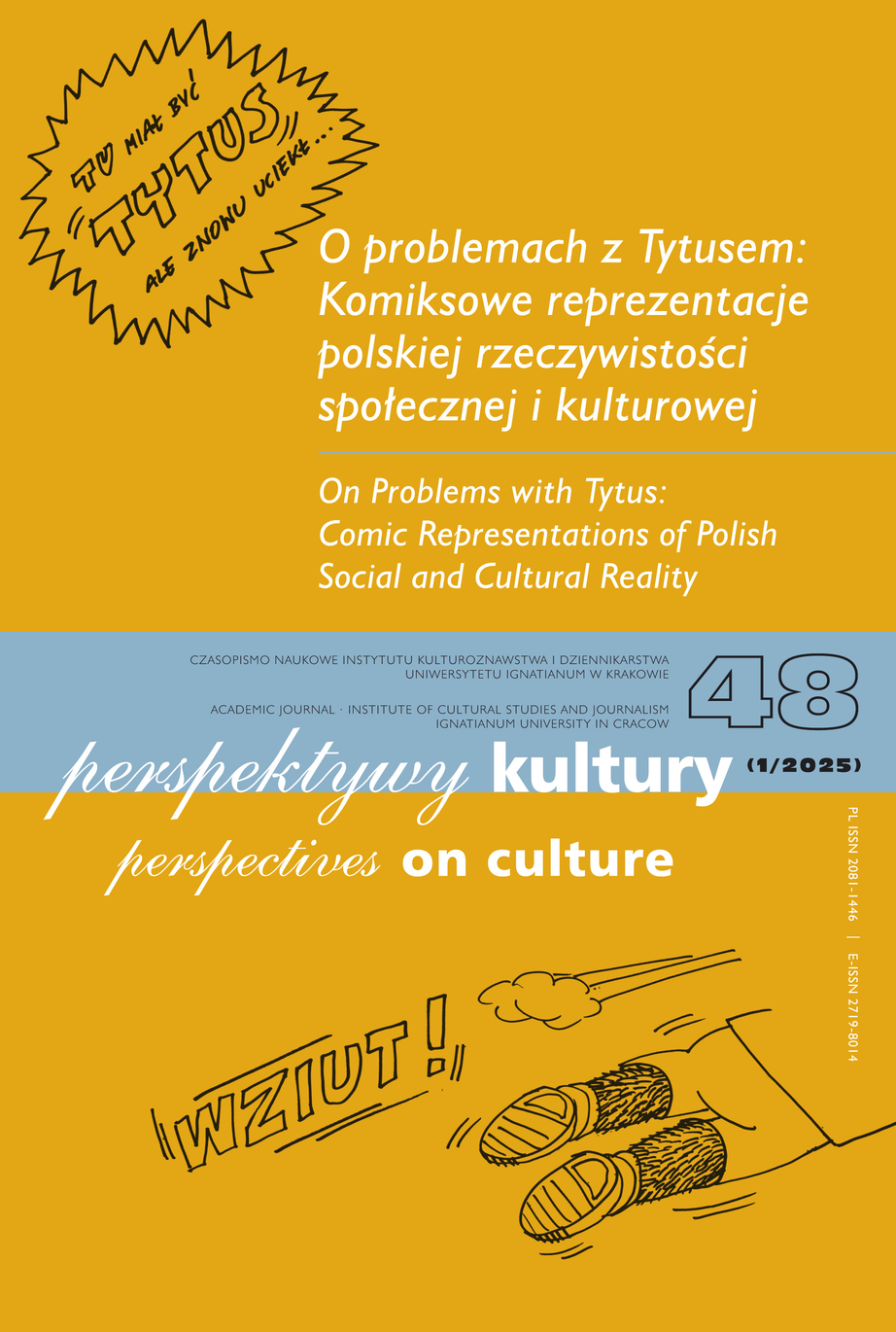Romano Guardini’s Conception of Melancholy, or On the Sense of Mis-Connection
Abstract
In the article, drawing on Romano Guardini’s Vom Sinn der Schwermut (On the Meaning of Melancholy) (1949), I examine the theological and existential significance of melancholy – an experience now classified as depression and treated therapeutically and pharmacologically, sometimes up to hospitalisation. This confrontation between two paradigms – the humanities and the sciences, philosophy and theology versus medicine – becomes even more significant in the context of the quasi-religious status psychotherapy has acquired, a phenomenon analyzed by Paul Tillich in Theology of Culture (1959), as a part of his broader critique of contemporary cultural revolutions. Tillich’s argument provides a framework for my interpretation of Guardini’s thought, particularly his assertion that melancholy is more than a mere psychological disorder. My primary contribution to this discussion is an exploration of the state of so-called mis-connection – a condition deeply embedded in human experience of the world of values, regardless of their nature. An emblematic illustration of this idea appears in the Old Testament: Samuel, called by God and addressed directly, repeatedly turns to Eli instead (1 Samuel 3:4–6). A number of Guardini’s reflections on melancholy suggest a similar theme of existential mis-connection. Finally, I argue that melancholy, rooted in the sense of mis-connection and as a state closer to human existential truth than it may appear, should not be seen as a burden or a flaw. Instead, it should be embraced as a challenge and a possibility.
References
Balthasar, H.U. (2003). Teodramatyka. T. 2: Osoby dramatu. Cz. 2: Osoby w Chrystusie, tłum. W. Szymona. Kraków: Wydawnictwo M.
Bettelheim, B. (1984). Freud and Man’s Soul. New York: Vintage.
Biblia Tysiąclecia. Pismo Święte Starego i Nowego Testamentu (2003). Pallottinum: Poznań.
Eagleton, T. (2015). Culture and the Death of God. New Haven, London: Yale University Press, 2015.
Guardini, R. (1969). Koniec czasów nowożytnych. Świat i osoba. Wolność, laska, los, tłum. Z. Włodkowa, M. Turowicz, J. Bronowicz. Kraków: Znak.
Guardini, R. (2009). O sensie melancholii, tłum. B. Grunwald-Hajdasz. Poznań: W drodze.
Kowalczyk, D. (2006). „Romano Guardini. Rozmowy o Bogu”, w: Leksykon wielkich teologów XX/XXI wieku, red. J. Majewski, J. Makowski. Warszawa: Biblioteka „Więzi”, s. 117-123.
Kowalczyk, St. (2010). Nurty personalizmu. Od Augustyna do Wojtyły. Lublin: Wydawnictwo KUL.
Ratzinger J. (2009). Wykłady bawarskie z lat 1963-2004, tłum. A. Czarnecki. Warszawa.
Szymik, J. (2010). Theologia benedicta. T.1. Katowice: Księgarnia św. Jacka.
Taylor, Ch. A Secular Age (2007). Cambridge, London: Harvard University Press.
Tillich, P. Theology of Culture (1959), ed. R. C. Kimball. Oxford: Oxford University Press.
Tillich, P. Teologia kultury (2020), tłum. J. A. Prokopski, N. Łomanowa-Barańska. Kęty: Wydawnictwo Marek Derewiecki.
Copyright (c) 2025 Perspectives on Culture

This work is licensed under a Creative Commons Attribution-NoDerivatives 4.0 International License.
Autor, zgłaszając swój artykuł, wyraża zgodę na korzystanie przez Wydawnictwo Uniwersystet Ignatianum z utworu na następujących polach eksploatacji:
- utrwalania utworu w formie papierowej, a także na nośniku cyfrowym lub magnetycznym;
- zwielokrotnienia utworu dowolną techniką, bez ograniczenia ilości wydań i liczby egzemplarzy;
- rozpowszechniania utworu i jego zwielokrotnionych egzemplarzy na jakimkolwiek nośniku, w tym wprowadzenia do obrotu, sprzedaży, użyczenia, najmu;
- wprowadzenia utworu do pamięci komputera;
- rozpowszechniania utworu w sieciach informatycznych, w tym w sieci Internet;
- publicznego wykonania, wystawienia, wyświetlenia, odtworzenia oraz nadawania i reemitowania, a także publicznego udostępniania utworu w taki sposób, aby każdy mógł mieć do niego dostęp w miejscu i czasie przez siebie wybranym.
Wydawca zobowiązuje się szanować osobiste prawa autorskie do utworu.





